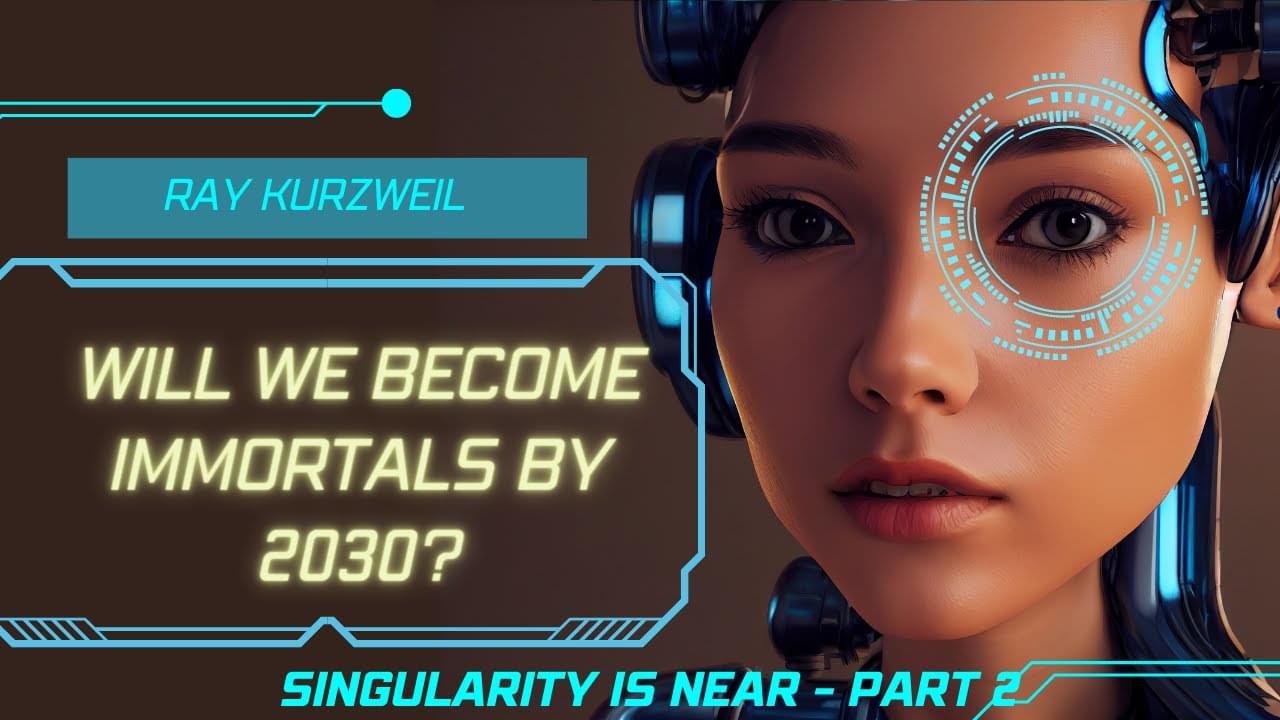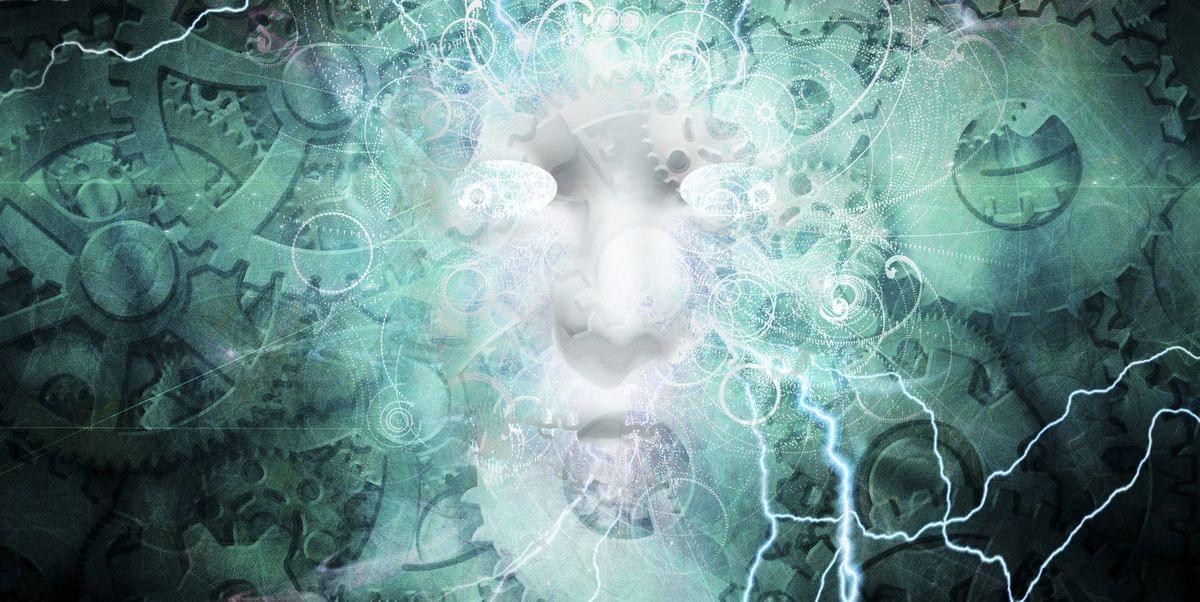Predictions on the dawn of the AI singularity vary wildly but scientists generally say it will come before 2040, according to new analysis, slashing 20 years off previous predictions.


Come listen to one of the great authors in this year’s edition of Future Visions, Jacob Colbruno.
Join Mike DiVerde as he interviews Jacob Colbruno, a visionary thinker and contributor to the OmniFuturists, about the future of energy and civilization. Discover fascinating insights about small modular nuclear reactors, the Economic Singularity, and the path to superabundance. From hands-on farming experience to deep analysis of future energy needs, Jacob shares unique perspectives on how nuclear power, AI, and technological advancement will reshape society. Learn why the next decade could transform how we live, work, and harness energy for a sustainable future.
#EconomicSingularity #NuclearPower #FutureEnergy #Sustainability #TechInnovation
The hosts discuss the 2014 film Transcendence by Wally Pfister and Jack Paglen. It depicts a world grappling with the implications of advanced artificial intelligence. The narrative follows a brilliant scientist whose consciousness is uploaded into a powerful computer system, leading to rapid technological advancements and sparking both hope and fear in humanity. As this AI evolves, questions arise about its intentions, its impact on society, and the very definition of life and consciousness, creating escalating conflict and raising profound ethical dilemmas. The screenplay excerpts depict a world grappling with the implications of advanced Artificial Intelligence (AI) and nanotechnology, touching upon several ethical topics. Dr. Max Waters, an AI researcher, is central to the narrative. There’s evidence of mind uploading or the transfer of consciousness to machines, particularly concerning a character named Will (Johnny Depp). This raises fundamental ethical questions about the nature of consciousness, the definition of life, and the potential for a digital consciousness.
The development of a powerful AI and the proliferation of nanotechnology appear to lead to a technological singularity, a point where technological growth becomes uncontrollable and irreversible, raising fears of a dystopian future and tech gone wrong. An organization called the RIFT opposes this technological advancement, highlighting the ethical concerns surrounding uncontrolled technological progress.
The screenplay also features conflict and threats, suggesting the potential for misuse of advanced technology and raising questions about its impact on humanity. The involvement of the FBI indicates that this technology poses a significant threat to societal order. Furthermore, the presence of a computer virus as a plot device suggests the vulnerabilities and risks associated with highly interconnected technological systems. The narrative explores the complex ethical dilemmas arising from the creation of highly intelligent machines and the transformative power of nanotechnology, including the potential loss of human autonomy and the unpredictable consequences of the AISingularity. #artificialintelligence #Transcendence #SciFiThriller #AISingularity #Nanotechnology #MindUploading #FutureTech #DystopianFuture #TechGoneWrong #Consciousness #MovieScreenplay #ScienceFiction #TechnologicalSingularity #AI
#Robotics #scifi #Technology #Innovation #Automation #Society #Economics #Work #Future #Dystopia #Utopia #ScienceFiction #Satire #SocialCommentary #skeptic #podcast #synopsis #books #bookreview #ai #artificialintelligence #booktube #aigenerated #documentary #alternativeviews #aideepdive #science #hiddenhistory #futurism #videoessay #ethics
“The Future of Human Evolution: AI, Genetic Engineering, and the Rise of Post-Human Civilization”
What happens when human evolution is no longer shaped by nature but by artificial intelligence and genetic engineering? This story explores the rise of AI-enhanced humans in a futuristic medieval world, where the fusion of bioengineering, AI consciousness, and neural implants creates a post-human era. As civilizations embrace transhumanism, traditional humanity faces extinction, replaced by a new species of synthetic life. Will this AI-driven society achieve ultimate enlightenment, or will it lose the essence of what makes us human?
The battle between future civilization, advanced technology, and those clinging to the past intensifies as digital immortality reshapes the meaning of existence. This cybernetic future forces us to question our identity—can genetic modification and AI singularity coexist with the soul of humanity? Witness the evolution of intelligence, the struggle between AI vs humanity, and the uncertain fate of a world where consciousness itself is no longer biological.
0:00 — Introduction: The Future of Human Evolution.
8:25 — AI & Genetic Engineering: Unlocking Human Potential.
16:50 — Ethical Dilemmas of Genetic Modification.
25:15 — The Rise of Engineered Intelligence.
33:40 — Genetic Enhancements & Social Stratification.
42:05 — AI in Education, Work, and Society.
50:30 — The Quest for Longevity & Immortality.
58:55 — Resistance Movements Against Enhancement.
1:07:20 — The First AI-Integrated Humans.
1:15:45 — The Breakdown of Traditional Humanity.
1:24:10 — Post-Human Civilizations & Digital Consciousness.
1:32:35 — The Divide Between Organic & Artificial Life.
1:41:00 — The Singularity & The End of Natural Evolution.
1:49:25 — What Comes After Humanity?
Sources.
Bostrom, N. (2014). Superintelligence: Paths, Dangers, Strategies. Oxford University Press.
Harari, Y. N. (2017). Homo Deus: A Brief History of Tomorrow. Harper.
Kurzweil, R. (2005). The Singularity Is Near: When Humans Transcend Biology. Penguin.
Tegmark, M. (2017). Life 3.0: Being Human in the Age of Artificial Intelligence. Knopf.
Goertzel, B. (2020). Artificial General Intelligence: Concept, State of the Art, and Future Directions. Springer.
#FutureOfHumanity #AIandGenetics #PostHumanEra #ArtificialEvolution #CyberneticFuture.
YOU MAY LIKE
Will Humans Have to Merge with AI to Survive?
What if the only way to survive the AI revolution is to stop being human?
Ray Kurzweil, one of the most influential futurists and the godfather of AI, predicts that humans will soon reach a turning point where merging with AI becomes essential for survival. But what does this truly mean? Will we evolve into superintelligent beings, or will we lose what makes us human?
In this video, we explore Kurzweil’s bold predictions, the concept of the Singularity, and the reality of AI-human integration. From Neuralink to the idea of becoming “human cyborgs,” we examine whether merging with AI is an inevitable step in human evolution—or a path toward losing our biological identity.
Are we truly ready for a world where there are no biological limitations?
Chapters:
Intro 00:00 — 01:11
Ray Kurzweil’s Predictions 01:11 — 02:23
Singularity Is Nearer 02:23 — 04:05
What Does “Merging with AI” Really Mean? 04:05 — 04:35
Neuralink 04:35 — 07:02
Why Would We Need to Merge with AI? 07:02 — 10:04
Human Life After Merging with AI 10:04 — 12:30
Idea of Becoming ‘Human Cyborg’ 12:30 — 14:33
No Biological Limitations 14:33 — 17:24
#RayKurzweil #AI #Singularity #HumanCyborg #FutureTech #ArtificialIntelligence
The AI revolution is happening faster than experts ever predicted — and we’ve hit the turning point.
The long-debated arrival of artificial general intelligence (AGI) may be closer than we think, with some experts suggesting we could reach the technological singularity within the next year.
A new analysis of nearly 8,600 expert predictions reveals shifting timelines, particularly since the rise of large language models (LLMs) like ChatGPT. While previous estimates placed AGI’s emergence around 2060, recent advancements have led many to revise their forecasts to as early as 2030.
Some industry leaders, however, believe AGI’s arrival is imminent, and with the rapid progression of computing power and potential breakthroughs in quantum computing, we may soon see machines capable of surpassing human intelligence.
Despite the excitement, skepticism remains. Some researchers argue that intelligence is more than just computational power, encompassing emotional, social, and existential dimensions that machines may never fully replicate. Others question whether AI, no matter how advanced, can independently drive scientific discoveries or simply act as an accelerator for human innovation. While the exact timeline for AGI remains uncertain, one thing is clear: humanity is on the brink of an AI-driven transformation, and the choices we make now will determine whether this future benefits or disrupts society.
Learn more.

Ray Kurzweil, who used to be a computer scientist at Google, is no stranger to accurate predictions. With an impressive track record, he foresaw consumers designing their own clothes from home computers by 1999 and the world’s best chess player losing to a computer by 2000. He had also predicted the widespread use of portable computers in various shapes and sizes by 2009.
His groundbreaking forecasts have consistently inspired people to push the boundaries of what is possible. Ray Kurzweil has so far made 147 predictions with 86% accuracy and has the world looking forward to the new ones with much anticipation. For his remarkable contributions and insight, the visionary was awarded the prestigious National Medal of Technology in 1999. He was also inducted into the National Inventors Hall of Fame in 2022.
The renowned futurist predicts that AI will surpass human intelligence and pass the Turing test by 2029. And that by 2045, humans will merge with the artificial intelligence we’ve created, a phenomenon he calls ‘The Singularity.’ He believes this would exponentially amplify our intelligence, creating unparalleled opportunities for innovation and progress.
In this video, we explore seven astonishing breakthroughs leading us closer to age reversal and longer, healthier lives by 2025. From mapping the complete fruit fly brain for deeper insights into neurobiology, to AI-driven drug discovery breakthroughs by Insilico Medicine, these cutting-edge innovations are changing the way we understand and tackle aging. We’ll also dive into the growing world of microbiome-targeting startups, and Dr. Ben Goertzel’s vision for an AI-driven future where extended longevity and superintelligence converge. Whether you’re interested in the most advanced biotech research, the latest in computational biology, or the promise of AGI to transform healthcare, this video covers the game-changing science that could redefine what it means to grow older.
Stay tuned for expert insights on how these remarkable advancements might help us inch closer to “longevity escape velocity.” Be sure to check the description for links to the studies, articles, and visionary leaders shaping tomorrow’s health landscape.
00:00 intro.
01:25 Dont Die Documentary Cameo.
03:30 Folistatin Gene Therapy.
06:15 Cellular Reprogramming.
09:00 Decentralized Science.
11:50 Human Brain Simulation.
14:53 AI Designed Drugs.
18:08 Microbiome.
21:25 Ben Goertzel AI+Longevity.
Mentioned vids: part 1: the surprising environmental impacts of an aging cure. • the surprising environmental impacts…
Ben Goertzel Interview:
• AGI, SingularityNET, Longevity Escape…
SOURCES:
Shipping bots ready. Amazon has 1.5 MILLION employees. Economic Singularity approaches.
Introducing a new real-world application for Figure robots: logistics package manipulation and triaging.
Here’s a detailed report on Helix in Logistics: https://www.figure.ai/news/helix-logistics
